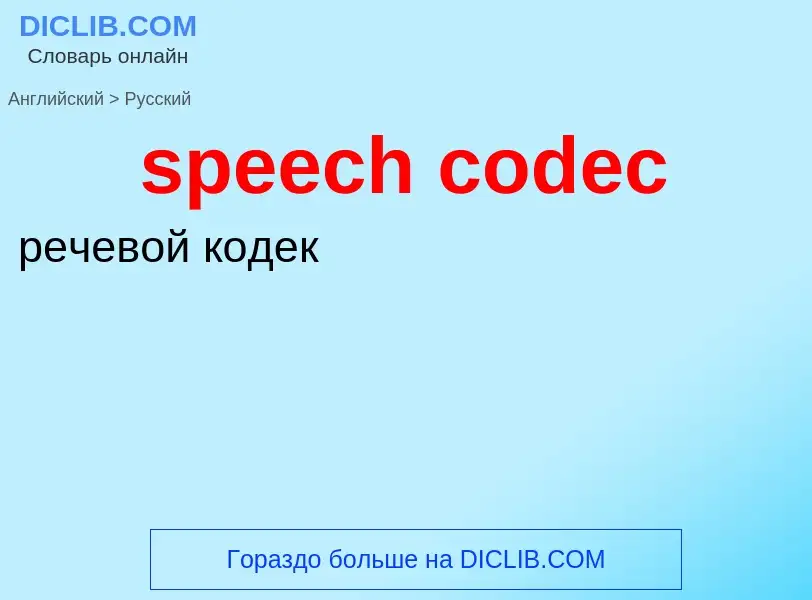Übersetzung und Analyse von Wörtern durch künstliche Intelligenz
Auf dieser Seite erhalten Sie eine detaillierte Analyse eines Wortes oder einer Phrase mithilfe der besten heute verfügbaren Technologie der künstlichen Intelligenz:
- wie das Wort verwendet wird
- Häufigkeit der Nutzung
- es wird häufiger in mündlicher oder schriftlicher Rede verwendet
- Wortübersetzungsoptionen
- Anwendungsbeispiele (mehrere Phrasen mit Übersetzung)
- Etymologie
speech codec - Übersetzung nach russisch
Wikipedia
Speech coding is an application of data compression of digital audio signals containing speech. Speech coding uses speech-specific parameter estimation using audio signal processing techniques to model the speech signal, combined with generic data compression algorithms to represent the resulting modeled parameters in a compact bitstream.
Some applications of speech coding are mobile telephony and voice over IP (VoIP). The most widely used speech coding technique in mobile telephony is linear predictive coding (LPC), while the most widely used in VoIP applications are the LPC and modified discrete cosine transform (MDCT) techniques.
The techniques employed in speech coding are similar to those used in audio data compression and audio coding where knowledge in psychoacoustics is used to transmit only data that is relevant to the human auditory system. For example, in voiceband speech coding, only information in the frequency band 400 to 3500 Hz is transmitted but the reconstructed signal is still adequate for intelligibility.
Speech coding differs from other forms of audio coding in that speech is a simpler signal than most other audio signals, and a lot more statistical information is available about the properties of speech. As a result, some auditory information that is relevant in audio coding can be unnecessary in the speech coding context. In speech coding, the most important criterion is preservation of intelligibility and pleasantness of speech, with a constrained amount of transmitted data. In addition, most speech applications require low coding delay, as long coding delays interfere with speech interaction.

